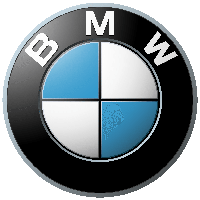Perl & Raku Training
Whether it's Perl or Raku training you are looking for we have a course that will meet your requirements. Our Perl training courses cover fundamentals and advanced Perl 5 and Perl 6 topics for the beginner or the more experienced Perl coder. Although Perl and Raku can be considered different languages Raku is described as "a Perl language" in that there is more than one way to do the same thing!
Perl Fundamentals Training
Our Perl fundamentals training deals with the basics of Perl syntax, data types such as lists, arrays, hashes, operations, and Perl functions as well as the famous Perl regular expressions.
Perl Advanced Training
Our Perl advanced training covers Perl modules, database integration, and network programming. It also goes into greater depth with array and list operations. context and reference types.
Raku Fundamentals Training
Our Raku training covers the Raku-type system. operators. array, list, and sequences. It also highlights the differences between Perl 5 and Raku.
Raku Advanced Training
The Raku advanced course covers advanced regular expressions, writing modules, asynchronous communications, phasers, multi-dispatch, grammars and reflection.
Perl Training Objectives
Perl Fundamentals Objectives
- Introduction to Perl
- Introduction to Perl
- History of Perl
- Description of Perl
- Basic concepts
- Scalar Data
- Scalar values
- Operators
- Scalar variables
- Operations on scalar of variables
- Safe coding practices
- Arrays
- Array variables
- Array access
- Using STDIN with an array
- Branching and Looping
- Statement blocks
- Statements
- If/unless conditionals
- While/until loops
- For and for each loops
- Do loops
- Hashes
- Hash what is it?
- Operators
- Hash Slices
- Input and Output
- Input operators
- Output operators
- Print / prints
- Here documents
- Regular Expressions Part 1
- Regular expressions
- Patterns
- Grouping patterns
- Operator precedents
- Regular Expressions Part 2
- Matching operator variants
- Substitutions
- Other operators
- Regular expression options
- Functions
- System and user defined functions
- Return values and arguments
- Passing values to Functions
- Variable number of parameters
- Pass by reference or value
Perl Advanced Objectives
- Revision, and the Perl Environment
- Course objectives
- Perl documentation
- Interpreter environment
- Running a Perl script
- Anatomy of a Perl script
- Perl variables
- Some short-cut operators
- Lexical variables (1)
- Controlling the interpreter - Pragmas
- Always use strictures
- Perl 5.10 - use feature
- Lexical variables (2)
- Lexical pragmas
- Perl debugging
- Context and Types
- Reminder: variable definitions
- Defined and undefined scalars
- Undefining arrays and hashes
- Predefined variables
- Some useful literal constants
- The DATA file handle
- Here documents
- Arrays and lists
- Comma operator
- Array slices
- Array magic
- Remember hashes
- Hash slices
- Context and type conversions
- Further Flow Control
- Revision - basic conditionals
- Revision - Boolean and logical operators
- Revision - what is truth?
- Smart match operator ~~
- Smart match operator is smart
- Short circuit operators
- Labels and loop jump statements
- The sad case of switch/case
- A kind-of case statement
- Switch / case statement
- The given statement
- Loop jump statements: continue
- Advanced for loops
- In-line conditional operator
- Defined-Or Operator //
- File condition functions
- Evaluating file conditions
- References
- What are references?
- Uses of references
- Creating references
- Using references
- Dereferencing array and hash references
- Using references
- Examining references
- Complex data structures
- Data::Dumper
- Reference counting
- Advanced Subroutines
- Calling a subroutine
- Subroutine return values
- Subroutine return values - context
- Subroutine arguments
- Named and default parameters
- Parameter passing - by value?
- Parameter passing - by reference?
- Parameter passing - by magic
- Explicit pass by reference
- References to subroutines
- Closures
- Subroutine as an lvalue
- Advanced List Functions
- Sorting
- Revision - array and list functions
- List functions: reverse, sort, grep, map
- The sort function
- Custom sort order
- Avoiding sort
- Sorting hashes
- map
- grep
- Input and Output
- File handles
- New file handles
- Scalar variables with handles
- The magic variable $/
- The 'flip-flop' operator
- Formatted output - printf
- Changing the default output handle
- Alternative IO functions
- File::Find
- The Perl IO model
- Using sysopen
- Reading and writing files
- Random access
- Advanced Regular Expressions
- Regular Expressions in Perl
- Review: Perl RE meta-characters
- Regular expression quoting
- Modifiers for regular expressions
- Review of side-effect variables
- Back-references
- More capturing groups
- Non-capturing groups
- Other capturing variables
- Named captures (5.10)
- Minimal matches
- Multi-line matches
- Alternatives to ^ and $
- Global matches
- Global match progress
- Comments in Regular Expressions
- Substitution with interpolation
- Look-around assertions
- Substitution using expressions
- Modules
- Splitting into modules
- Using modules
- The library directories
- Using subroutines from modules
- Writing modules: structure of a module
- Namespaces
- Using modules without symbol export
- Example of unconditional export
- Example of on-demand export
- Symbol export using tags
- BEGIN and END blocks
- Order of BEGIN and END blocks
- Attaching a module with require
- Standard modules
- Adding modules
- Other ways of getting modules
- Handling Errors and Exceptions
- Warnings and diagnostics
- Controlling warnings
- Error handling
- Errno module
- Error handling - Carp
- Dealing with undef
- eval
- eval syntax
- Error trapping using eval
- Dying with a reference
- Signal handling in Perl
- Alternative signal handling
- Sending signals
- Timing out - alarm
- Fake signals
- warn and carp
- Processing the warn and die signals
- Errors in child processes
- Object Oriented Programming
- Review of Object Oriented Programming
- Object-Oriented terminology
- OO features in Perl
- Basic object usage
- Objects are references
- Implementing objects
- Accessing object fields
- Constructors
- Implementing object methods - details
- Method calls
- Destructors
- Method inheritance
- The parent pragma - 5.10.1 or later
- Inheriting constructors
- To OO, or not to OO?
- Database Interfacing Using DBI
- Perl and databases
- The tie interface
- Tie-ing a hash to a GDBM file
- DBI and DBD
- DBI objects and methods
- Connect and disconnect
- Driver issues with MS SQL Server
- Options for connect
- Life cycle of a statement
- Placeholders
- Reading information
- Fetching database meta-data
- Repeated statement execution
- Other database handle methods
- Database capabilities
- Manual transaction control
- Error handling
- Calling a stored procedure
- Other DBI drivers
- Network and Web Programming
- Networking concepts: layers and sockets
- Sockets are file handles
- A basic client
- A basic server
- Network modules: FTP client
- Network modules: web client
- Network modules: sending mail
- Program generated web pages
- Secure Perl - taint mode
- Running a CGI script
- Using HTML from Perl
- A simple CGI script
- CGI.pm basic functions
- Form handling using CGI.pm
- Templates
- Frameworks
Raku Training Objectives
- Raku Introduction
- Language specification vs. implementation
- Installing the Rakudo Perl 6 compiler
- Understanding the Rakudo Perl 6 stack
- Hello, world
- Statements
- The REPL
- The zef module installer
- Where to find documentation and assistance
- Values
- Numerics
- Values know WHAT they are
- Strings
- Booleans
- Variables
- Scalar variables
- Array variables
- Hash variables
- Assignment vs. binding
- Dynamic variables
- Interpolation
- Basic I/O
- slurp and spurt
- Working with file handles
- Encodings
- Control flow
- Iteration with the for loop
- Conditionals
- Definedness
- More loopy skills
- Basic testing
- Testing culture
- The Test module
- The most common test assertions
- plan vs. done-testing
- Routines and blocks
- Subroutine declaration
- Signatures, parameters, and arguments
- Return type constraints
- Blocks and pointy blocks
- Placeholder parameters
- Unpacking and destructuring
- Smart matching
- The ~~ and !~~ operators
- given, when, and the topic variable revisited
- where traits
- subset types
- Exception essentials
- die and CATCH
- Built-in exception types
- Test assertions relating to exceptions
- Object orientation
- Classes, attributes, and methods
- Roles and flattening composition
- Inheritance
- Custom exception classes
- Parametric roles
- The FALLBACK method
- Introspection
- Basic text pattern matching
- New regex syntax overview
- Literals
- Quantifiers
- Character classes, built-in and user-defined
- Grouping and capturing
- Named captures
- Alternations: sequential and longest prefix
- Factoring out patterns into named regexes
- Look ahead and other zero-width assertions
- Parsing with grammars
- What is a grammar?
- Start at the TOP
- The parse and subparse methods
- token vs regex
- rule and automatic whitespace handling
- make and .made
- Action classes
- Creating modules
- Modules, compilation units, and distributions
- The export trait and export tags
- use and importing by tag
- The EXPORT sub for custom exporting
- The META6.json file
- Multiple dispatch
- By arity
- By type
- By smart matching
- By structure
- Insight: operators are just multi-dispatch subroutines
- The MAIN subroutine
- Sequences and laziness
- Array, List, and Seq
- Common list-processing operations: map, grep, unique, and more
- The reduce, zip, and cross meta-operators
- Concurrency
- Promise and await
- Reactive programming with Supply
- Working with processes asynchronously
- The supply/react/whenever syntax
- Functional Programming
- Functions are first-class citizens
- Anonymous functions
- Chaining
- Feed Operator
- Hyper operator
- Junctions
- Lazy Lists
- Closures
- Native Calling Interface
- Calling a function
- Renaming a function
- Passing Arguments
- Returning values
- Types

Our Clients







About Us
Jumping Bean stands at the forefront of open-source integration and training, offering a rich history of over two decades of exceptional service to our clients. Our comprehensive suite of services is designed to meet the evolving needs of businesses across various sectors, from small enterprises to global corporations. At Jumping Bean, we are committed to excellence, innovation, and fostering long-term partnerships with our clients.
Our Expertise:
Linux Services: Offering everything from Service Level Agreement (SLA) support and ad-hoc assistance to system hardening and solutions architecture, we ensure your Linux environment is robust, secure, and tailored to your business needs.
PostgreSQL Solutions: Specializing in SLA-based support, implementation assistance, solutions architecture, and performance tuning, our PostgreSQL services are designed to optimize your database systems for peak performance.
DevOps Transformation: Our comprehensive DevOps offerings include advisory services, implementation support, consulting, SLA support, and training, facilitating seamless software development and operations integration.
Big Data Insights: With expertise in Google, Azure & AWS Big Data support, data flow architecture, implementation support, and training, we empower businesses to leverage big data for actionable insights and competitive advantage.
Security Assurance: From advisory services and Security Operations Center (SOC) services to security audits, reviews, and training, our security solutions are crafted to protect your assets and data comprehensively.
Software Development: Our software development services, encompassing mobile and enterprise apps, are tailored to deliver innovative and user-centric solutions that drive engagement and value.
Cloud Consulting: We offer a full spectrum of cloud consulting services, including migration, cloud provider support, workflow architecture, automation, big data, and containerization, to help businesses thrive in the cloud.
Why Choose Jumping Bean?
Long-Term Partnerships: Our approach to building lasting relationships with our clients enables us to deeply understand their needs, providing customized solutions and training that drive tangible business outcomes.
Global Reach, Local Impact: Serving both large and small businesses in South Africa and across the globe, we offer the flexibility of both remote and on-site support, ensuring we're there whenever and wherever you need us.
Passion for Technology: Our dedication to open-source technology and continuous innovation means our clients benefit from cutting-edge solutions that offer early adopter advantages while mitigating the risks.
Comprehensive Support: With a focus on practical experience and customer-centric solutions, Jumping Bean is your trusted partner in navigating the complexities of technology integration and optimization.
Discover how Jumping Bean can transform your business with our open-source solutions and training. Visit us at Jumping Bean to explore our services and how we can tailor them to your unique business challenges. Together, let's innovate, optimize, and lead in your industry.
Please contact us for any queries via phone or our contact form. We will be happy to answer your questions.
Ferndale,
2194 South Africa
Tel: +2711-781 8014 (Johannesburg)
+2721-020-0111 (Cape Town)
ZA
Jumping Bean Contact Form!
